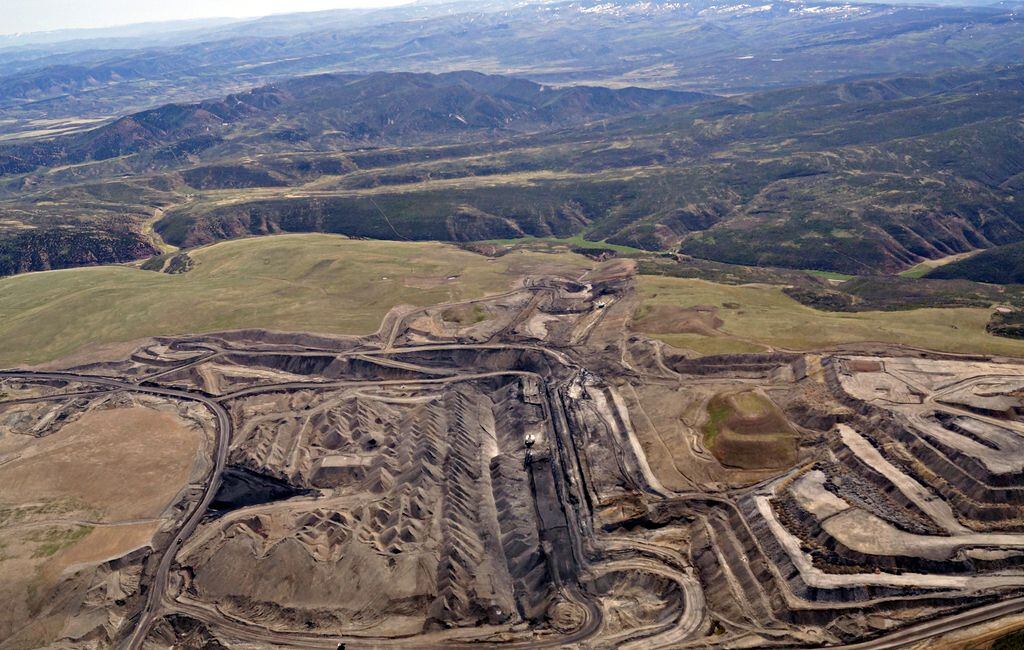
State mining regulators this week shut down a southern Utah coal operation after it blew multiple deadlines to replace its invalid reclamation bond, issued by a company that is now under investigation for insurance fraud.
The owners of Coal Hollow Mine must provide the Utah Division of Oil, Gas and Mining (DOGM) with a $13.4 million surety by March 10, or begin reclaiming the mine’s permit area, according to the cessation order.
On Tuesday, two DOGM staffers delivered the cessation order to Alton Coal Development’s on-site manager Kirk Nicholes and conducted an inspection to ensure active coal extraction was terminated at the 1,017-acre site.
“We felt that we had given them enough time since our first division order [issued Oct. 19],” said DOGM director John Baza. “After several extensions, we were probably losing credibility with our federal overseers from the Office of Surface Mining. We wanted to make sure that we were doing the right thing and proceeding with our enforcement.”
He emphasized the mine, which employs about 30, will be allowed to resume operations once the bond is in order.
One of Utah’s five active coal mines, Coal Hollow is the only surface operation. Its operators had secured a federal lease east of the bucolic Kane County town of Alton and had moved its operations there from private land it has mined out.
Utah law prohibits mines from operating without a bond sufficient to cover the cost of restoring the land.
“It helps the state to not be stuck with the liability of reclaiming a coal mine if the operator should default,” Baza said. “We can’t look at a crystal ball and say that one operator is going to last longer than another operator. So all of the operators are required to follow the same set of rules, and that is to put up full-cost bonding for coal reclamation.”
Reclamation is a touchy subject for Alton Coal. The operator is now in trouble with local farming families whose land it used for an earlier phase of the mine. The landowners say their property was not fully reclaimed for agricultural use as required by law. In response, DOGM has refused to release the reclamation posted for that area until Alton Coal completes the job.
In the meantime, the Cedar City-based company hasn’t paid its property taxes in any of the past four years, according to Kane County assessor records which indicate that the company is $443,000 in arrears.
A voice message left at Alton Coal’s Cedar City office was not returned.
The bonding fiasco started last year when Alton Coal replaced its surety bonds with instruments issued by a firm called Triangle Surety Agency under a “producers agreement” with an insurance provider called Lexington National Insurance Corp, according to documents on file with DOGM. In September, Lexington informed DOGM that those bonds were never valid and were likely fraudulent.
While the coal producer may not be at fault for the bond’s deficiencies, DOGM director John Baza instructed Alton to come up with a valid bond or cease operations by Dec. 14. The agency has since granted three deadline extensions. On Feb. 7 the agency finally lost patience and put a stop to mining operations.
Ohio coal magnate Thomas Ungurean owns a majority stake in the Coal Hollow mine, through an LLC called SH Coal Investment, according to DOGM documents. James Waylund of Naples, Fla., is listed as the controller, holding a 21% stake Alton Coal Development. He did not return a voicemail on Friday.
For years, Alton Coal sought the federal lease to 40 million tons of coal on a 3,581-acre tract west of Bryce Canyon National Park, which the Trump administration awarded in 2018. After moving onto the federal lease in 2020, its production rebounded to more than 500,000 tons in 2020, according to the Utah Geological Survey. Last year, the mine produced 349,000 tons of coal.
Under the cessation order, Alton is allowed to sell and remove coal from its stockpile, conduct reclamation, and conduct any equipment maintenance, but it may not create any new disturbance on the ground. The company had informed DOGM it expected to have secured a new surety in order by the end of the week, according to Baza, but as of Friday nothing had been received. Alton may resume mining when the surety is in order.